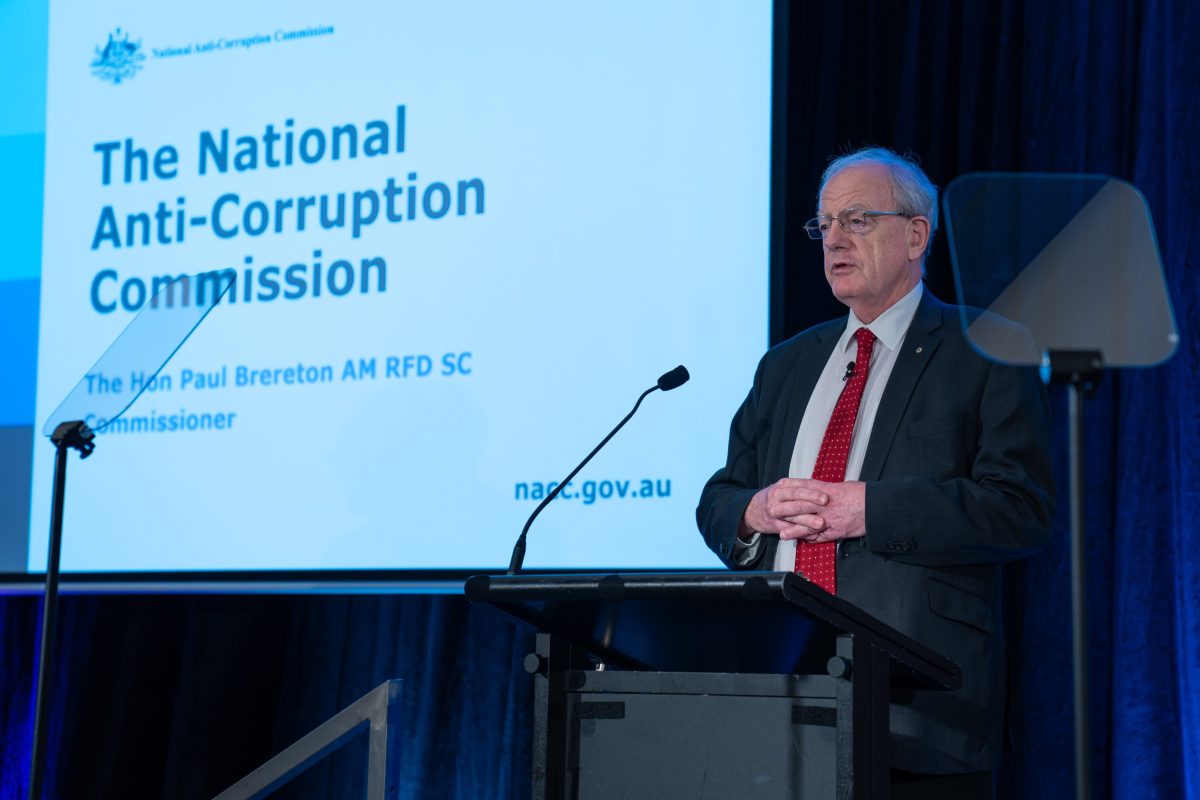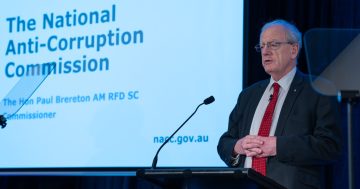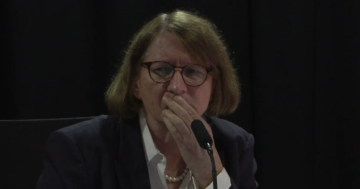
National Anti-Corruption Commissioner Paul Brereton will not take part in the Commission’s Robodebt investigations. Photo: NACC.
The National Anti-Corruption Commission will now investigate all six people referred to it by the Robodebt Royal Commission after initially saying there was nothing to see here.
An independent review into the NACC’s refusal to pursue the six people referred has forced the corruption watchdog to backflip over its decision. The six people were not publicly named by the royal commission.
Independent reviewer Geoffrey Nettle KC made his decision early this month after being appointed by the NACC to reconsider its decision.
The NACC was forced into appointing Mr Nettle as an ‘independent eminent person’ to review its walk away.
The Commission’s initial decision was first investigated by the Commission’s inspector Gail Furness.
In October, Ms Furness found NACC Commissioner Paul Brereton had failed to act properly after declaring a conflict of interest in relation to one of those people referred.
She concluded the commissioner had engaged in what is legally described as “officer misconduct”, but stressed he had not broken the law.
The NACC has not divulged the substance of Mr Nettle’s decision this month, but it will now investigate the six people.
Mr Brereton and the deputy commissioners involved in the initial decision not to investigate the six will now have nothing to do with the new investigation.
“As a result of the decision made by its independent reconsideration delegate, Mr Geoffrey Nettle AC KC, on 10 February 2025, the Commission will investigate the six referrals it received from the Royal Commission into the Robodebt Scheme,” the NACC announced on Tuesday (18 February).
“The purpose of the investigation is to determine whether or not any of the six referred persons engaged in corrupt conduct.
“Consistent with its usual practice, the Commission does not publish reasons for commencing an investigation, as doing so may prejudice the investigations, disclose information which the Commission is required by law to keep confidential, compromise investigative pathways and/or unfairly impact reputations and rights of individuals to impartial adjudication.
“The Commission is now making arrangements to ensure the impartial and fair investigation of the referrals, as it did with the appointment of Mr Nettle as independent reconsideration delegate.
“The Commissioner and those Deputy Commissioners who were involved in the original decision not to investigate the referrals will not participate in the investigation.”
The six people referred to the NACC include five public servants and one public official.
Addressing the Governance Institute of Australia in November last year, Commissioner Brereton accepted the finding in the inspector’s report that he had erred in judgment but added that the one person he knew of those referred over Robodebt was not a close friend but rather a “past professional relationship”.
“That report found that although I declared a perceived conflict of interest and managed it by delegating decision-making to a deputy commissioner and excused myself from the meeting when the decision was to be made, this was insufficient to avoid the decision not to reinvestigate the Robodebt issues and was affected by apprehended bias,” he said.
“That is, the possibility that a reasonable observer would think that the decision was possibly not impartial on account of my involvement in parts of the process … Any mistake of fact or law is within the definition of ‘officer misconduct’ in the NACC Act, and so that stinging finding inevitably followed.”
The Community and Public Sector Union has welcomed the development, with national secretary Melissa Donnelly describing it as an “important moment” in the push for more accountability.
“For years, the architects of Robodebt have walked away without consequence, while the people they harmed have been left to pick up the pieces,” Ms Donnelly said.
“That is unacceptable.”
The illegal Robodebt automated debt recovery scheme was piloted in 2015 and fully rolled out between 2016 and 2019 by the Department of Human Services and its successor, Services Australia. More than 470,000 false debts were issued.
It caused extensive grief and trauma. Some recipients are reported to have taken their own lives over the debts. The scheme was officially scrapped in 2020.
Royal Commissioner Catherine Holmes delivered her report into the scheme in July 2023.
An investigation by the Australian Public Service Commission last year found former department secretaries Kathryn Campbell and Renée Leon to have both breached the Public Service Code of Conduct in their handling of Robodebt.
In its most recent sitting last week, Federal Parliament granted the Tax Ombudsman greater powers to investigate public sector records in order to avoid a repeat of Robodebt.
It was another part of the government’s response to the royal commission.
Original Article published by Chris Johnson on Riotact.







